Get The Best PageSpeed Score
For Your WordPress Website

JSON Payload Size Calculator: Calculate JSON Size and Optimize Performance
When you are using JSON format data for a software program or web application, the JSON Size Calculator becomes a handy tool for calculating the size of a JSON file, and also you can optimize your JSON file.
Here, we will see the JSON structure, how to calculate your JSON size & the benefits of using a JSON calculator. Explore how to optimize your JSON file. Also, we will wrap up by seeing some online tools to make your development process easier.
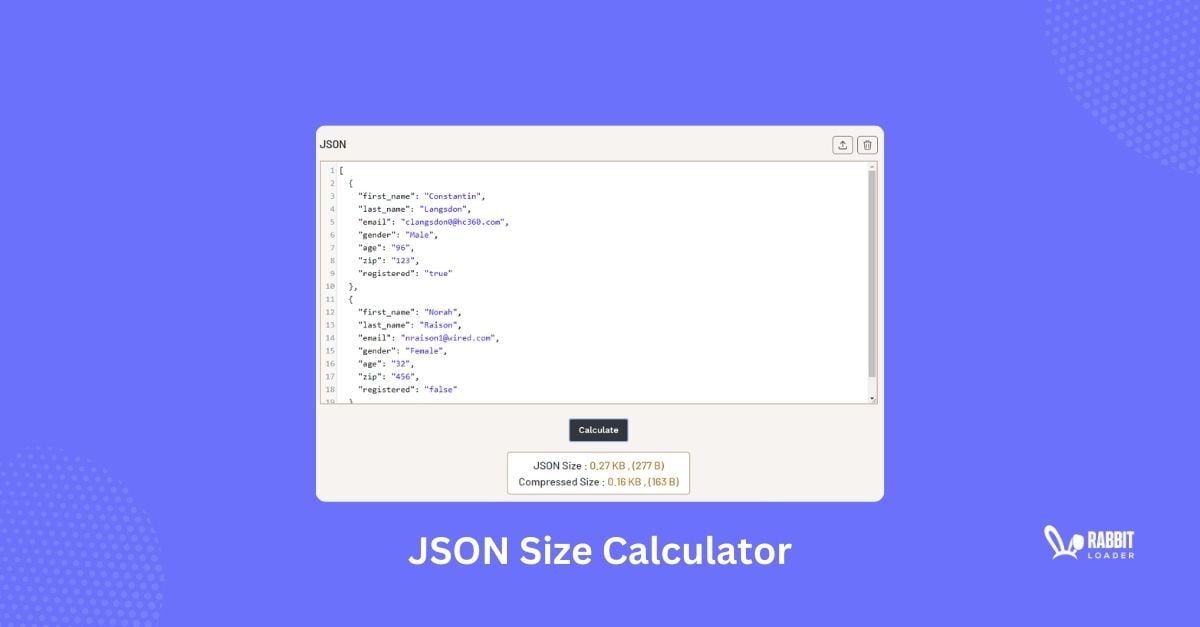
What is JSON and Understanding the JSON Structure?
JSON (JavaScript Object Notation) formats are text-based formats that developers use to store data in a Web application and transmit that data between the application and a server. JSON formats are easy for both machines and humans to understand.
JSON, is the subset of JavaScript syntax, making it simple and easy for both machines and humans to work with. For its simplicity, JSON is widely used in almost all web applications for APIs and storing structured data.
For a better understanding of the JSON structure, let’s see the JSOPN syntax with an example.
The JSON Syntax:
{
“Name”: “John”,
“Age”: 30,
“isEmployee”: true,
“address ”: {
“City”: “Chicago”,
“zipcode”:10001
}
}As you can see in the above syntax, a JSON file must start with curly braces “{“. Then you need to create a pair namely an identifier and its value. Every pair needed to be separated by a comma. Finally, by a closing brace “}” you need to complete your JSON file.
See more: cURL Error 28
What Are the Different Types of JSON Data?
JSON formats support several data types including string, number, array, boolean, null, and others. Here we will discuss these data types in detail.
- String:
In JSON, a string is used to indicate textual data such as Name, city, etc. In an easy way, the string is a data type that indicates a sequence of characters. Strings are always enclosed by double quotes (“).
Let’s see an example for JSON:
text: “John” In the above example, the text denotes the identifier and John denotes the value.
- Number:
In JSON, a number data type represents the numerical values. This number data type can be integers or floating numbers. This can be positive and negative.
A JSON integer number’s example would be 50 and a JSON floating number:
25.2- Array:
A JSON array refers to a collection of homogeneous data types. This JSON array values can contain numbers, strings, booleans, and null with third braces “[ ]”, and can be separated by commas.
Let us understand with an example.
[ 10,
20,
30
]- Boolean:
Boolean in JSON data type represents either true or false value. This JSON boolean is commonly used to express any logical condition.
Example:
true, false- Null:
Null in JSON represents an empty value.
JSON Size Calculator: The Benefits of Using a JSON Size Calculator?
At this point, we have briefly explained about JSON. Now we will see how a JSON size calculator can offer a smooth journey in web development and data management.
- JSON Size Calculator Allows You to Optimize Your Data Transmission
By calculating the JSON object file’s size using the JSON size calculator, you can optimize your data transmission by minifying the payload size. This speeds up the database query, especially when you have a large amount of data on your website.
Get The Best PageSpeed Score
For Your WordPress Website
- JSON Size Calculator Can Efficiently Allocate Your Resources
Accurately estimating your JSON object size by using a JSON size calculator, you can allocate your resources more efficiently. Thus you can adequately use the server.
View: Minify Resources
For example:
{
"user": {
"id": 12345,
"name": "John Doe",
"email": "[email protected]",
"is_active": true,
"roles": ["admin", "editor"],
"preferences": {
"theme": "dark",
"notifications": true
}
},
"timestamp": "2024-09-27T10:00:00Z"
}Let’s assume this JSON object is around 200 bytes in size. So, according to this, you need to choose your resource files to manage memory efficiently.
- JSON Size Calculator Can Optimize the Performance of Your Web Application
Understanding JSON file size by using a JSON size calculator, you can easily optimize the performance of your web application, especially in mobile applications or low bandwidth environments for data-related actions.
JSON Size Calculator: How to Calculate Your JSON Size yourself?
Now you can understand the importance of JSON size calculation. But how to calculate a JSON object’s size? Let’s see how easily you can calculate your JSON size by following these steps:
- If your JSON object is not in string format, you need to convert it into a string format. By using JSON.stringify().
Here’s the syntax:
const arr = ["John", "Peter", "Sally", "Jane"];
const my JSON = JSON.stringify(arr);- If your JSON file is encoded using a specific character, you need to convert it into spring format. There are several tools available online such as the md2 hash generator, md5 hash generator, md4 hash generator, md6 hash generator, and others.
- Count the number of characters in your JSON file. You need to include whitespace characters as well such as spaces, tab, and line breaks. For this, a text-editor can be used.
Get The Best PageSpeed Score
For Your WordPress Website
By doing this, you can get your JSON file’s size properly. Additionally, JSON files’ size depends on the data it contains. Let’s understand with an example. If your JSON file has string data, then the size will be large compared to the file having only numbers.
JSON Size Calculator: 3 Scenarios Where You Can Use This
Here, you will see the three scenarios where you can use the JSON size calculator.
- A JSON size calculator is useful where optimizing data storage is needed in a large sized database.
- When you need to analyze or optimize a JSON-based application’s performance.
- You need to transmit the JSON payloads with limited bandwidth over networks.
How Do You Optimize Your JSON Files?
Now you have a brief idea about a JSON size calculator. Here, we will discuss some strategies for optimizing your JSON file along with the coding example.
- Minimize Your JSON Data Size by Using the Short Identifier
Try to use short and meaningful identifier names in your JSON pair to minimize YOUR JSON data size. You also can consider abbreviations for your identifier.
Let’s understand with a code example.
// Inefficient code
{
"customer_name_with_spaces": "John Doe"
}
// Efficient code
{
"cust_Name": "John Doe"
}In the above example, you can see that customer_name_with_spaces has a total of 25 characters, whereas customerName has only 12 characters. So, the best practice is to avoid unnecessary characters in your identifier.
- Avoid Using Nested Arrays in Your JSON Files.
To minimize your JSON file size, try to avoid nested arrays, which can increase the complexity of your JSON file.
For example:
// Inefficient coding
{
"order": {
"items": {
"item1": "Product 1",
"item2": "Product 2"
}
}
}A better way to add the data in a JSON file:
// Efficient coding
{
"orderItems": ["Product 1", "Product 2"]
}- Remove Redundancy in Your JSON data.
Sometimes, we use repeated data in JSON files, which leads to data redundancy. Try to avoid this duplicate data to minimize your JSON file.
Here’s an example.
// Inefficient coding
{
"product1": {
"name": "Product 1",
"price": 150
},
"product2": {
"name": "Product 2",
"price": 100
}
}
// Efficient coding for a better result
{
"products": [
{
"name": "Product 1",
"price": 150
},
{
"name": "Product 2",
"price": 100
}
]
}- Optimizing Number Representation
A floating number can consume more space than an integer number. In your JSON file, try to use integer format as much as you can rather than the floating format.
/ Inefficient coding
{
"quantity": 1.0
}
// Efficient coding
{
"quantity": 1
}Online Tools That You Need to Use When You are Using JSON File
There are several free online tools available that you can use to optimize your JSON file.
- JSON Minifier: You can use this tool to do JSON minify.
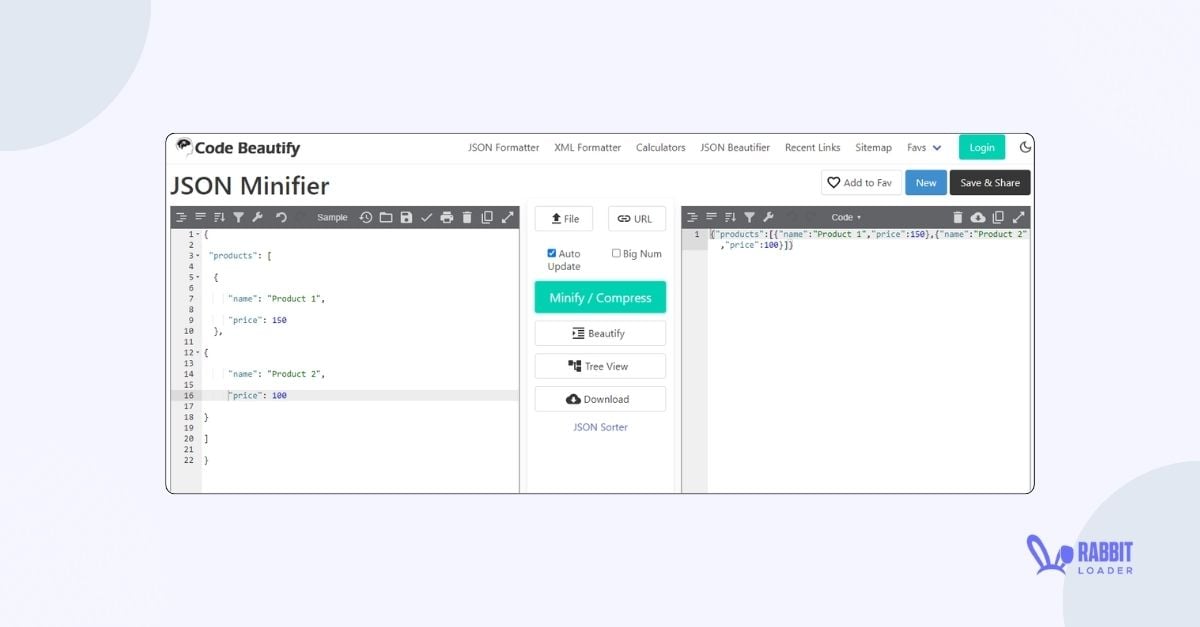
- HTML Converter: Convert your JSON file to an HTML file.
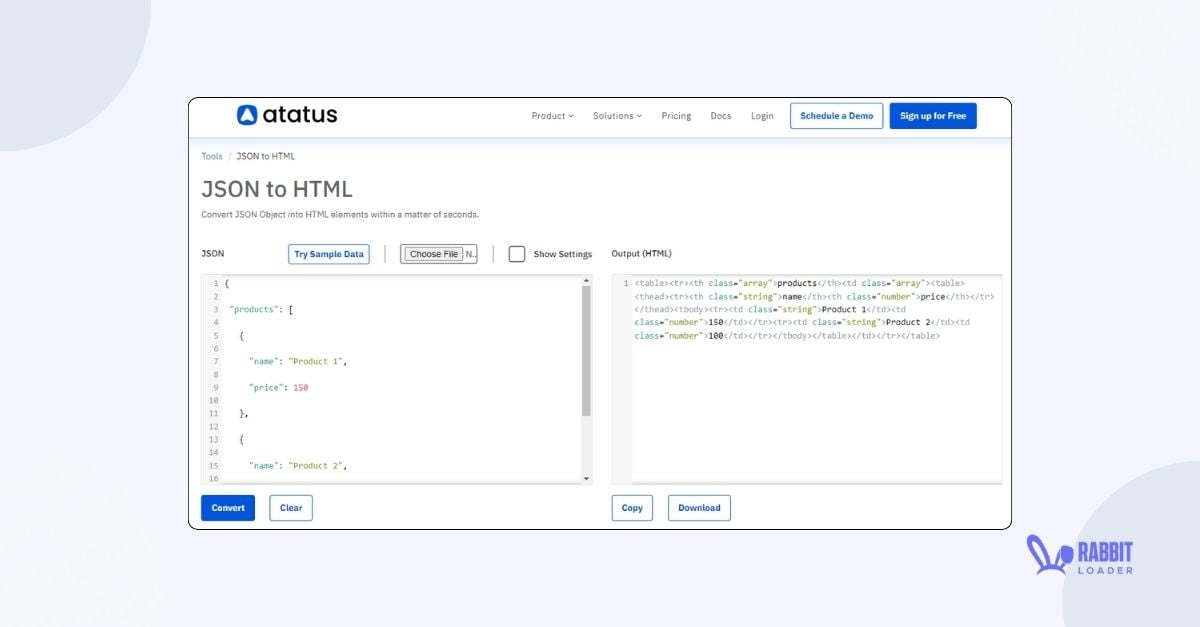
- CSV Converter: Convert your JSON file to a CSV file.
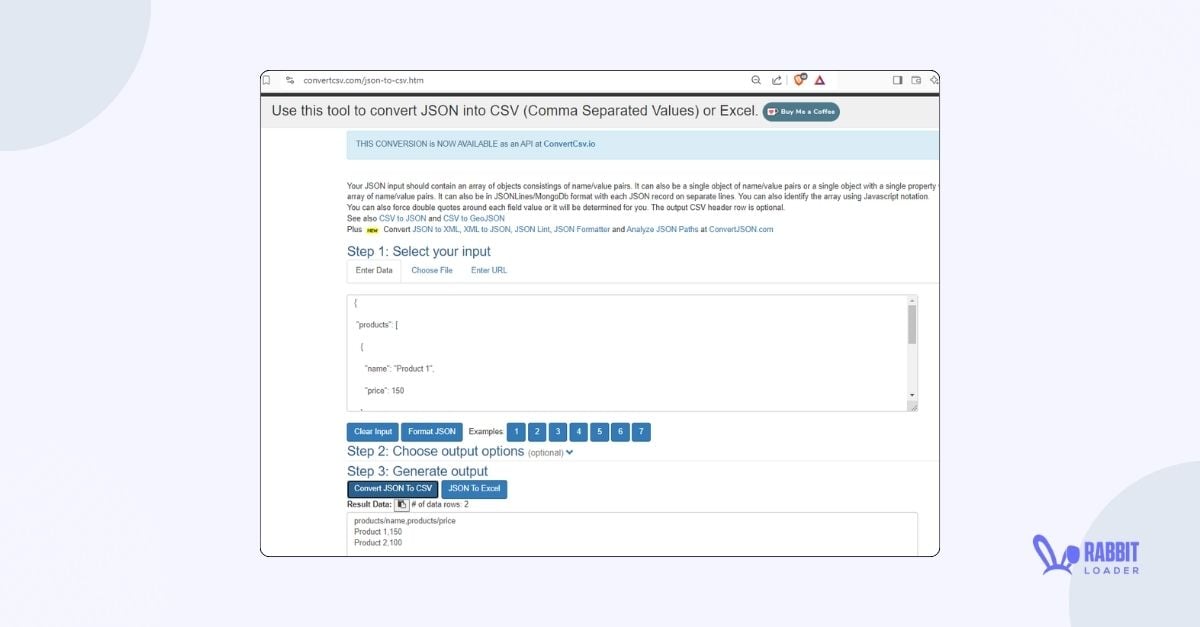
- XML Converter: Convert your JSON file to an XML file
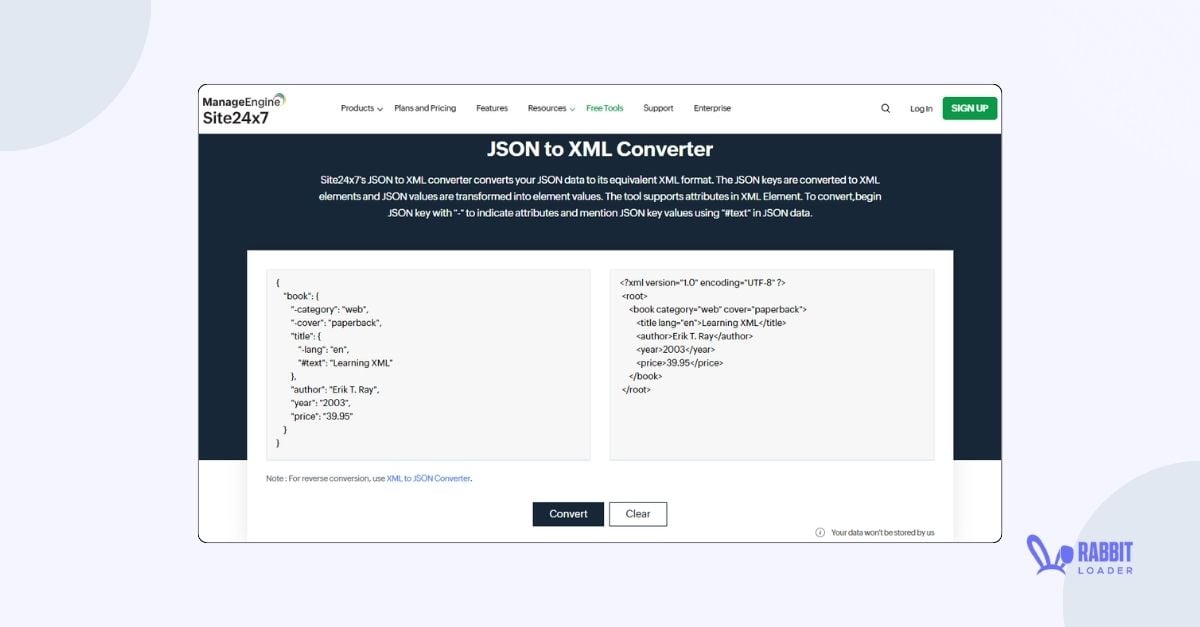
- CMYK Converter: This is a color code converter tool.
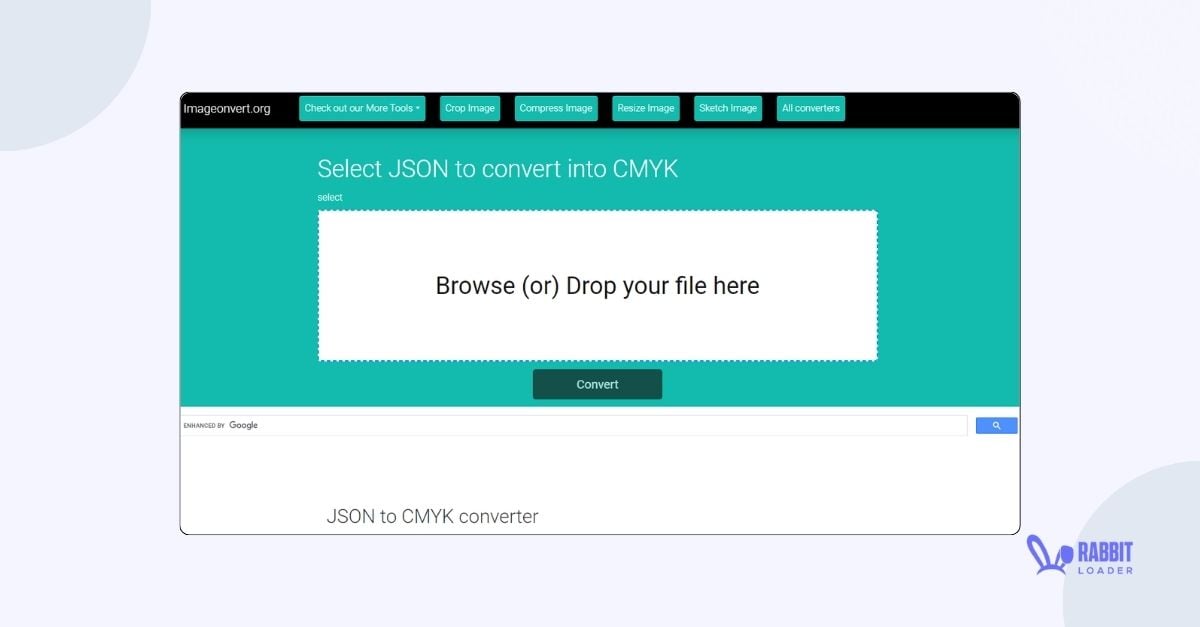
- RGB Converter: Convert your RGB image into JSON.
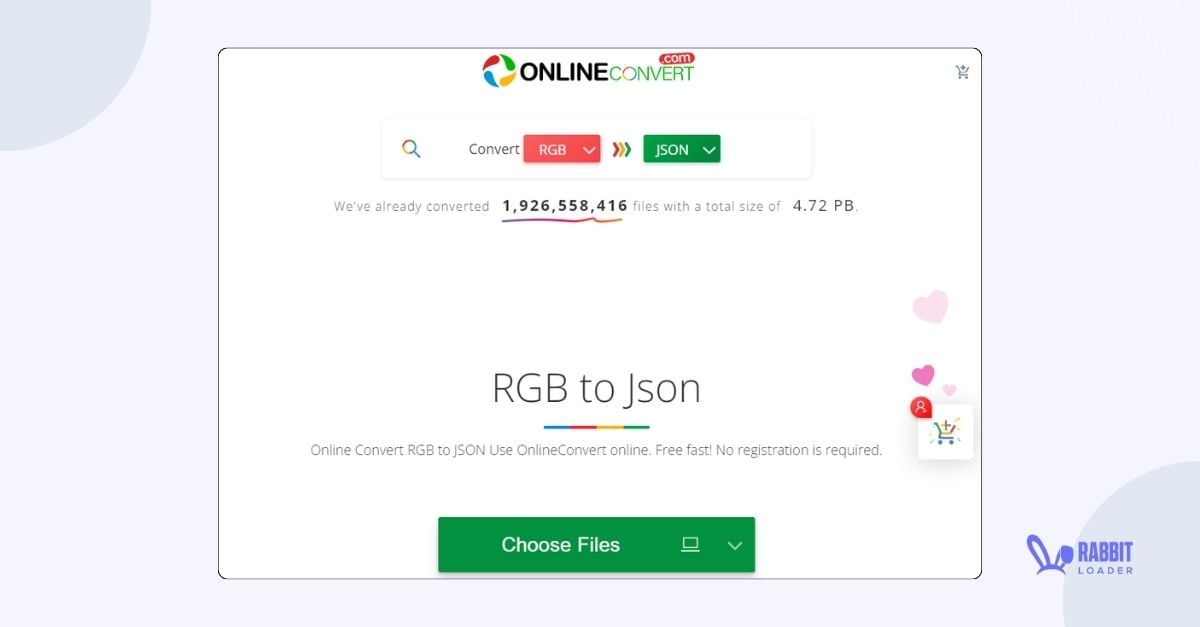
- Minify JS: Minify your JSON and JavaScript files.
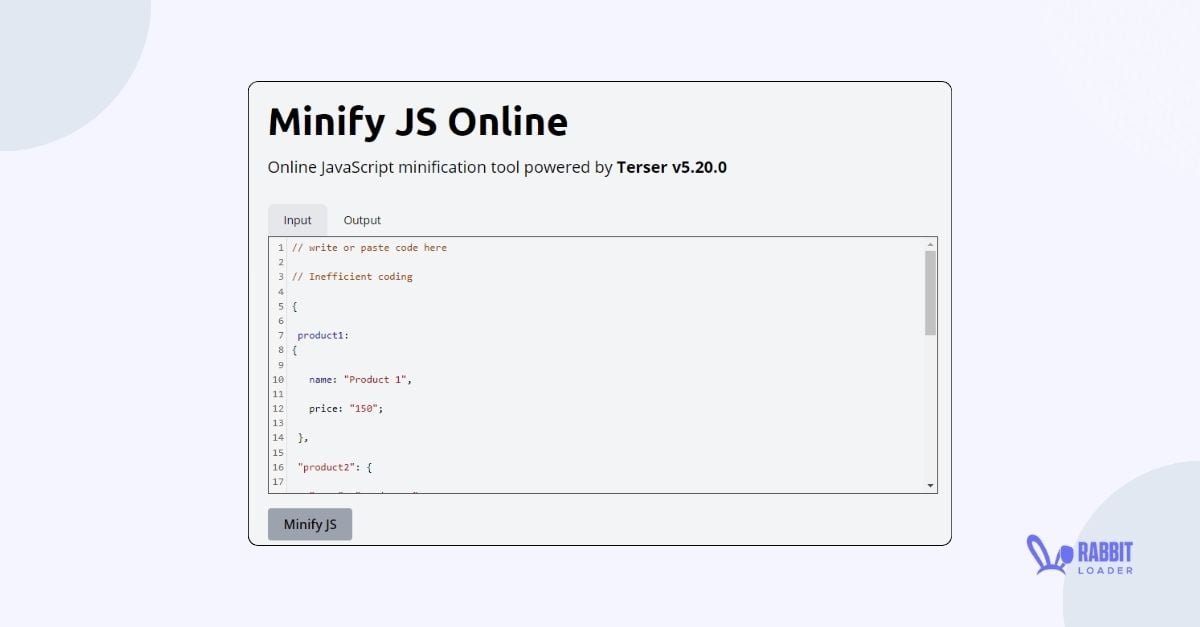
- JSON Beautifier: Make your JSON file readable.
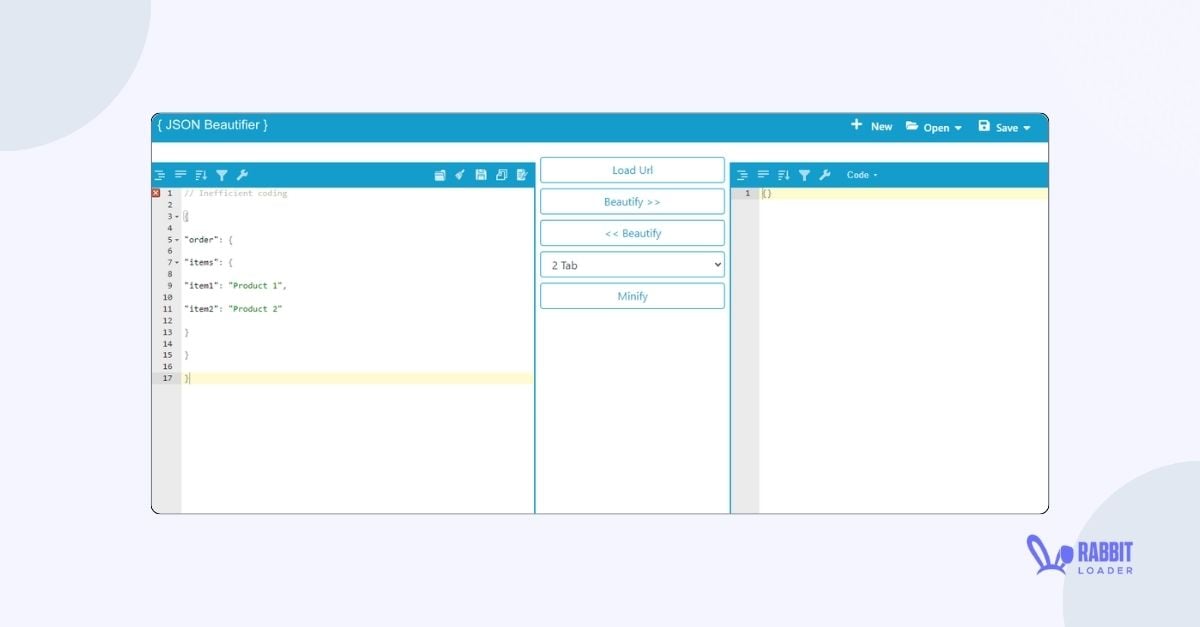
- JSON Parser: This tool helps you to parse, view, and analyse your JSON data in tree view.
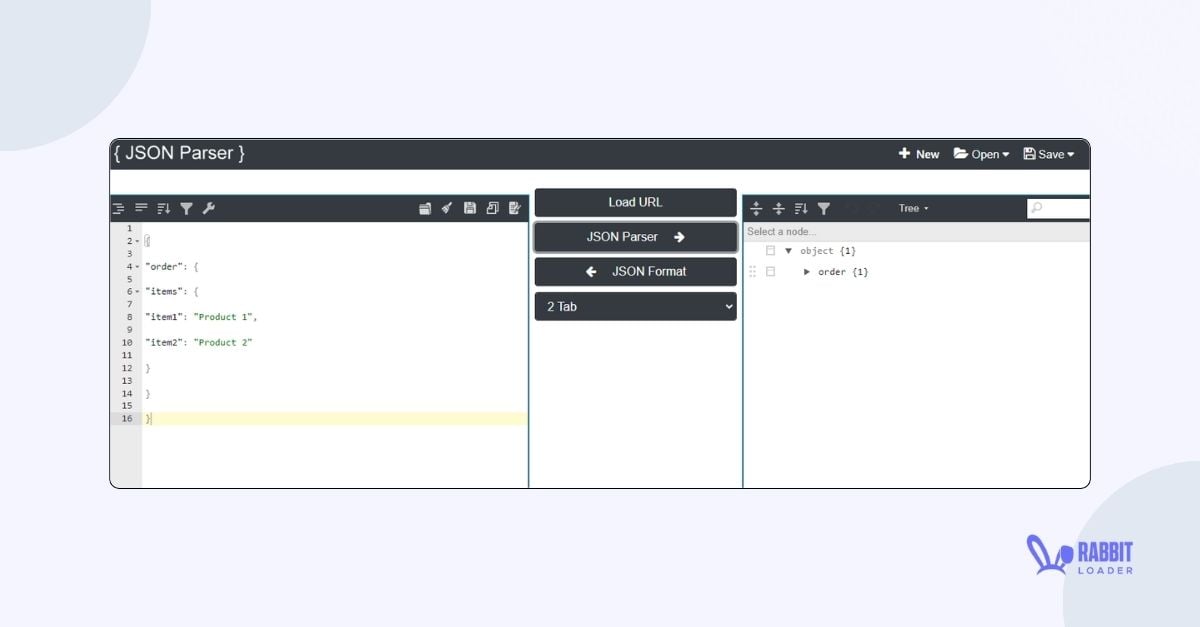
Conclusion
Here, you have learned about JSON and JSON size calculators in detail. If you are developing any web application, you must use JSON for its simplicity and easy-to-understand features. Also, you need to apply the above strategies for JSON file optimization.
Get The Best PageSpeed Score
For Your WordPress Website